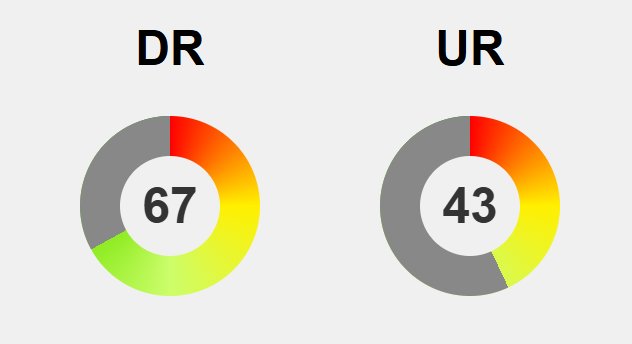Recent breakthroughs in genetic research reveal that our DNA influences intelligence more significantly than previously thought—yet how much of our potential is truly dictated by our genes remains an open question. Science shows intelligence as a complex, polygenic trait, shaped by countless genetic variants working together amid environmental factors like education and nutrition. While heritability estimates suggest that genes may account for up to 80% of cognitive differences among groups, they do not predetermine individual IQ. The intricate web of gene interactions, combined with external influences, underscores that potential is a dynamic interplay, not a fixed fate. How can this knowledge redefine education, healthcare, and social policy? As science advances toward personalized support and early interventions, ethical considerations become paramount—promising a future where understanding our genetic blueprint could unlock human diversity and capacity, yet raising vital questions about equity, privacy, and societal responsibility.
Unraveling the Complex Role of Genetics in Shaping Intelligence
The question of how much genetics influence intelligence has long captured the curiosity of scientists and the public alike. For years, the dominant view was that environmental factors—such as education, nutrition, and social opportunities—played the primary role in shaping our cognitive abilities. However, recent advances in genetic research are challenging that perspective, revealing that DNA also significantly contributes to our mental potential. This isn’t about a single gene or a simple switch; rather, it’s a complex interplay of many genetic factors working together.
Science now shows that intelligence is a polygenic trait, meaning it results from hundreds, perhaps thousands, of genetic variations. Each of these tiny differences adds a small piece to the puzzle, making the genetic influence more intricate than once believed. Instead of searching for a “gene for intelligence,” researchers focus on understanding how these many genetic elements combine to influence brain development, neural connectivity, and cognitive function.
Heritability estimates, which measure the proportion of variation in IQ attributable to genetics within a population, often range between 50% and 80%. These figures suggest that genetics can explain a substantial part of the differences in intelligence observed across groups, especially in similar environmental conditions. But they don’t determine an individual’s IQ outright. Instead, they highlight the foundational role of inherited traits, which then interact with environmental factors throughout life.
Twin and family studies reinforce this genetic influence. Identical twins raised apart often display remarkably similar IQ scores, underscoring the importance of heredity. Children tend to inherit cognitive traits from their parents, further illustrating how DNA shapes our mental capacities. Yet, environmental influences—like access to quality education and nutrition—also play a vital role in how these genetic predispositions are expressed.
Understanding the genetic basis of intelligence is still a work in progress, but it’s clear that genes set the stage for potential. How that potential unfolds depends heavily on the environment—highlighting the importance of nurturing conditions that allow individuals to develop and thrive. Recognizing this complex relationship invites us to rethink how we approach education, health, and social policies, emphasizing both our genetic makeup and our environment’s power to shape our cognitive abilities.
The Scientific Foundations: Heritability, Polygenic Traits, and Genetic Mapping
Understanding how genetics influence intelligence begins with grasping some key scientific concepts. Heritability is central to this discussion; it measures the proportion of variation in IQ within a population that can be attributed to genetic differences. Heritability estimates typically range from 50% to 80%, indicating that genetics play a significant role in shaping cognitive differences across groups. However, this doesn’t mean genetics determine an individual’s intelligence outright—rather, it reflects how much genetics contribute to variability among people in a given environment.
Intelligence is a polygenic trait, meaning it results from the combined effects of many genes rather than a single gene. Unlike simple inherited traits like blood type, complex traits like IQ involve hundreds or thousands of genetic variants, each exerting a small influence. This complexity makes predicting intelligence from genetics a challenge, because it’s the cumulative impact of these tiny effects that shapes cognitive abilities.
Scientists explore these genetic influences through genome-wide association studies (GWAS). These studies analyze the entire genome of thousands of individuals to find common genetic variants linked to differences in IQ. While no single genetic change predicts intelligence, GWAS reveal patterns and broader genetic architectures that contribute to cognitive variation across populations. They help map the intricate genetic landscape underlying intelligence, though much remains to be understood.
Gene interactions, known as epistasis, add further layers of complexity. Sometimes, the effect of one gene depends on the presence or absence of others, influencing how traits are expressed. External factors like education, nutrition, and social environment can modify these genetic effects, emphasizing that genes don’t act in isolation. Instead, they intertwine with environmental influences, shaping how potential is realized.
Variations in genes related to brain development influence physical structures and neural connectivity. Certain genes affect brain size, wiring, and synaptic efficiency, which in turn impact reasoning, memory, and problem-solving. For instance, differences in genes linked to the prefrontal cortex and hippocampus help explain why individuals excel in different cognitive domains. These physical differences rooted in genetics are key to understanding individual strengths and weaknesses.
Twin and family studies reinforce the genetic component of intelligence. Identical twins raised apart often have remarkably similar IQ scores, highlighting the strong influence of heredity. Similarly, intelligence tends to run in families, with children inheriting cognitive traits from their parents. Yet, environmental factors like access to quality education and nutrition significantly influence how these genetic predispositions develop and manifest.
The picture of genetic influence on intelligence is complex and layered. It involves many small effects, interactions, and environmental influences working together. Recognizing this interconnectedness is crucial for appreciating human diversity. It also underscores that while genetics lay the foundation, external factors—like nurturing environments—are essential for unlocking each individual’s full cognitive potential.
Deciphering the Intricate Web of Genetic Interactions and External Influences
The genetic influence on intelligence isn’t a straightforward story; it’s a web of many small effects working together in complex ways. Unlike traits controlled by a single gene, intelligence involves hundreds or even thousands of genetic variants, each contributing only a tiny piece to the overall puzzle. This makes predicting someone’s IQ based on genetics a real challenge, because it’s the combined influence of all these tiny effects that shapes cognitive ability.
Scientists are developing tools called polygenic scores to try and capture this complexity. These scores sum up the effects of countless genetic variants to estimate a person’s genetic predisposition for higher or lower IQ. However, even these broad measures only provide a probabilistic view—they don’t determine with certainty how someone will perform. This underscores just how many genes are involved, each playing a minor role but working in concert in ways we’re still trying to understand.
Gene interactions, or epistasis, add an extra layer of intricacy. Sometimes, the impact of one gene depends on the presence or absence of others, influencing how traits manifest. For example, a genetic variant that might boost reasoning in one individual could have little to no effect in another, depending on the broader genetic context. These interactions turn the genetic architecture of intelligence into a tangled web rather than a straightforward chain.
External factors further complicate this picture. Someone carrying genes associated with high cognitive potential might not reach that potential without proper nutrition, education, and social support. Environmental influences can amplify or suppress genetic effects, meaning that genes set the foundation, but the environment determines how much of that potential is realized. This dynamic makes intelligence a product of both inherited traits and external conditions.
Understanding this layered complexity helps explain the vast variation in human intelligence. It’s not a matter of a few genes dictating everything but a mosaic of tiny effects, interactions, and environmental influences working together. Recognizing these nuances is key to appreciating individual differences and the challenges in predicting or enhancing cognitive abilities.
This intricate genetic web underscores why intelligence isn’t fixed or solely determined by DNA. Instead, it’s a flexible trait shaped by countless small effects that interact continuously with life experiences. As science advances, unraveling this complexity will be crucial for developing a more complete understanding of human potential and diversity.
Research into these genetic and environmental interactions continues to grow, offering hope for more personalized approaches to education and cognitive development. Understanding the full scope of factors involved can help tailor interventions that support individuals in reaching their full potential. For further insights into how genetics influence intelligence, you can explore more at Genetic Influences on Intelligence.
Harnessing Genetic Insights to Transform Education, Healthcare, and Policy
Understanding the genetic basis of intelligence opens up new possibilities for shaping how we approach education, healthcare, and social policy. Recognizing that genetics significantly influence cognitive potential encourages tailored learning strategies. Instead of a one-size-fits-all approach, educators can adapt teaching methods to individual strengths and weaknesses, helping students reach their full potential without labeling or limiting expectations. This personalized approach fosters inclusivity and respects the diversity of innate abilities rooted in both genes and environment.
In healthcare, insights into genetics enable earlier detection of developmental delays and learning disabilities. When a child shows signs of being genetically predisposed to certain cognitive challenges, targeted interventions can start sooner, often before difficulties become deeply ingrained. This proactive stance enhances long-term outcomes, making support more precise and effective by aligning treatment plans with each person’s unique genetic profile. Such early, customized interventions can significantly improve a child’s developmental trajectory.
Policymakers play a vital role in translating scientific advances into equitable frameworks. By understanding the influence of genetics on intelligence, they can craft policies that promote access to quality education, adequate nutrition, and mental health resources. These efforts help ensure that external barriers don’t suppress genetic potential, especially in disadvantaged communities. Creating supportive environments amplifies individual capabilities and reduces disparities, emphasizing that nurturing conditions are as crucial as genetic factors.
However, applying genetic knowledge responsibly is crucial to avoid misconceptions. It’s essential to communicate that genetics set a foundation, not a fixed limit. Traits influenced by many genes are probabilistic, meaning they increase the likelihood of certain outcomes rather than predetermine them. Overreliance on genetic data could lead to stigmatization or discrimination if misinterpreted. Clear guidelines, transparency, and respect for privacy are necessary to ensure ethical use and to foster public trust in integrating genetics into practical decisions.
The interplay between genetics and environment underscores that potential is not destiny. A child with a genetic predisposition for high reasoning skills will benefit most from quality education and a nurturing environment. Conversely, external factors can help unlock or hinder genetic potential, making the development of supportive external conditions vital. Recognizing this balance ensures that interventions focus not only on genetic factors but also on improving external conditions that shape cognitive growth.
Looking ahead, advances in genetic research promise more personalized, effective support systems. Tailoring education and intervention strategies based on genetic profiles could help unlock hidden potential and address learning challenges early. Still, ethical standards must guide this progress—protecting privacy, ensuring equity, and avoiding misuse. When implemented responsibly, understanding genetics can become a powerful tool to foster inclusive growth and recognize the diverse paths to human achievement.
Gazing Into the Future: Ethical Challenges and the Possibilities of Personalized Cognitive Support
Research into the genetics of intelligence is advancing rapidly, driven by technological breakthroughs that allow us to analyze the human genome with unprecedented detail. Large-scale genome sequencing and sophisticated tools like machine learning are helping scientists identify genetic variants linked to cognitive abilities more accurately and efficiently. As datasets grow more diverse and extensive, our understanding of how genetic differences influence intelligence across populations will deepen, revealing the full scope of human potential in ways we never imagined.
These developments point toward a future where personalized approaches in education and healthcare become more feasible. Imagine tailoring learning strategies based on an individual’s genetic profile, enabling early intervention and customized support that unlocks each person’s strengths while addressing their unique challenges. In medicine, early detection of genetic predispositions could lead to targeted therapies that support cognitive development or mitigate learning disabilities before they set in, making support more proactive and effective.
However, these advancements also raise important ethical questions. Ensuring responsible use of genetic information is crucial, as misinterpretation or misuse could reinforce stereotypes or lead to discrimination. Developing clear guidelines around data privacy, informed consent, and equitable access will be essential to maintain public trust and prevent harm. Ethical oversight must keep pace with scientific progress to ensure that the benefits of understanding our genetic blueprint serve everyone fairly and without bias.
The complexity of gene interactions remains a significant challenge. While we are uncovering many genetic factors associated with intelligence, each contributes only a small effect, and their interplay with environmental influences adds layers of nuance. Integrating insights from epigenetics—how external factors can modify gene expression—offers promising opportunities to understand how life experiences shape genetic potential. Combining genetic, epigenetic, and environmental data will be key to developing a more comprehensive picture of cognitive development.
Looking ahead, the potential of these scientific insights goes far beyond prediction. They open pathways for early, targeted interventions that support individual growth, helping to unlock hidden potential and address learning challenges before they become entrenched. Yet, realizing this promise depends on maintaining strict ethical standards, prioritizing privacy, fairness, and inclusivity. Building frameworks that balance innovation with social responsibility ensures that advances in genetic research enhance society as a whole, fostering a future where human diversity is celebrated and all individuals have the opportunity to thrive.


